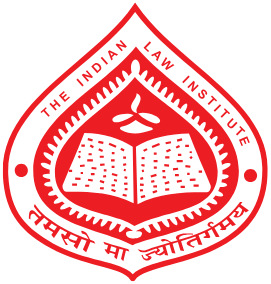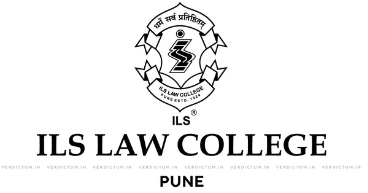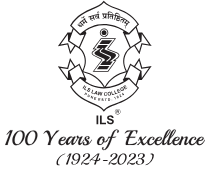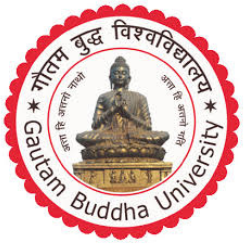
Law in India
A career in Law is one of the most respected and rewarding professions in India. Many reputed institutions across the country — such as NLUs (National Law Universities), Government Law Colleges, and Top Private Law Schools — offer LLB and integrated law programs (BA LLB, BBA LLB, B.Com LLB) along with postgraduate (LLM) and doctoral legal studies.
Admission to top law colleges in India generally requires appearing in entrance exams such as CLAT, AILET, LSAT India, or state-level law entrance tests. Before applying, candidates must understand the types of law colleges and their intake capacity.
Types of Law Colleges & Seat Intake in India
| Type of Institute | No. of Colleges | Seats (Approx.) |
|---|---|---|
| NLUs (National Law Universities) | 23 | 3,200+ |
| Govt./State University Law Departments | 500+ | 30,000+ |
| Private Law Colleges/Universities | 1,000+ | 70,000+ |
| Deemed Universities / Autonomous Law Schools | 80+ | 10,000+ |
| Total | ~1,600+ | ~1,13,000+ |
Introduction
Pursuing a Law degree in India is an excellent choice for students aiming to become advocates, legal advisors, judges, academics, or corporate professionals.
India is home to 23 National Law Universities (NLUs) and several other top-ranked institutions like NLSIU Bangalore, NALSAR Hyderabad, WBNUJS Kolkata, Faculty of Law (Delhi University), Jindal Global Law School, and many state law colleges.
With highly qualified faculty, moot courts, internships with law firms, and exposure to real-world legal cases, law graduates in India receive training that equips them for both domestic practice and opportunities abroad.

Why Choose Law as a Career in India?
- Prestigious Profession: Law remains one of the oldest and most respected professions worldwide.
- Extensive Academic Opportunities: Choose from 5-year integrated courses, 3-year LLB, LLM, and PhD programs.
- Diverse Career Paths: Law graduates work in litigation, corporate law, judiciary, civil services, academia, NGOs, policy-making, and international organizations.
- Professional Exposure: Through moot courts, debates, legal aid clinics, and internships with law firms, High Courts, and the Supreme Court.
- Global Value: Many Indian law schools maintain tie-ups with foreign universities, allowing global exposure and exchange possibilities.
- High Demand for Legal Professionals: Corporate houses, startups, MNCs, and government institutions actively recruit lawyers.
- Pathway to Judiciary & UPSC: An LLB degree paves the way to become a judge (Judicial Services Exam) or pursue civil services.
Law Course Details
| Particulars | Details | |||
|---|---|---|---|---|
| Name of the Course | Bachelor of Law (LLB/BA LLB/BBA LLB/B.Com LLB) | |||
| Popularly Known as | LLB / Law | |||
| Level of Course | Undergraduate & Postgraduate | |||
| Duration | 5 years (Integrated BA LLB/BBA LLB), 3 years (LLB), 1-2 years (LLM) | |||
| Internships | Mandatory internships (courts, law firms, NGOs, corporates) during course | |||
| Eligibility | Passed Class 12 (for 5-year) or Graduation (for 3-year LLB) with minimum 45–50% marks | |||
| Minimum Age | No upper age limit (as per Bar Council of India, recent update) | |||
| Number of Law Colleges | 1,600+ | |||
| Number of Seats (UG Law) | ~1.1 lakh+ annually |
Entrance Exams for Law Admission in India
Admission to major law colleges is based on national, state & university-level tests:
CLAT (Common Law Admission Test): For admission to 23 NLUs (except NLU Delhi).
AILET (All India Law Entrance Test): For admission to NLU Delhi.
LSAT India: Accepted by many private universities (e.g. OP Jindal Global Law School).
CUET (Central Universities Entrance Test): For central universities’ law programs.
MH CET Law: Maharashtra State Law Entrance.
AP LAWCET & TS LAWCET: Andhra Pradesh & Telangana state law entrance tests.
KLEE: Kerala Law Entrance Exam.
RUET, PU CET: For Panjab University Law Admissions.
Law Cutoff Trends
Cutoffs vary every year depending on exam difficulty, number of applicants, and seats available.
🎓 NLSIU Bangalore
Top 100–120 rankers usually secure admission.
🎓 NALSAR Hyderabad
Rank up to 170–180.
🎓 WBNUJS Kolkata
Rank up to 220–250.
🎓 NLU Jodhpur / Bhopal
Rank up to 350–400.
🎓 Other NLUs
Rank 1000+ may still get seats in lower-ranked NLUs.
🏛 Private & State Colleges
Private colleges like Jindal Global accept moderate LSAT/CUET scores; DU & GLC Mumbai have relatively high cutoffs.
Key Takeaway
Pursuing Law in India offers students the chance to develop critical reasoning, advocacy, and leadership skills. With growing demand for legal professionals in courts, corporates, and international organizations, law graduates enjoy diverse career options.
Career Paths for Law Graduates include:
Top recruiters include:
Law firms (Amarchand, Khaitan, Trilegal, Luthra), corporate houses (Tata, Infosys, Reliance), NGOs, think tanks, UN bodies, judiciary, and civil services.
Top Private Law colleges
Symbiosis Law School (SLS)
- City : Pune
- Study Area : Law
- Location : shop no 14, 10 Biz Park, Survey No 227,Rohan Mithila, New VIP Road, Plot No. 11, Symbiosis Law School Rd, Opposite Pune Airport, Mhada Colony, Viman Nagar, Pune, Maharashtra 411014
Kalinga Institute of Industrial Technology (KIIT) School of Law
- City : Bhubaneswar
- Study Area : Law
- Location : Prasanti Vihar, Patia, Bhubaneswar, Odisha 751024
Lloyd Law College
- City : Noida
- Study Area : Law
- Location : Plot No. 11, Amity University Rd, Knowledge Park II, Greater Noida, Uttar Pradesh 201306
Indian Law Institute
- City : New Delhi
- Study Area : Law
- Location : Bhagwan Das Rd, opp. Supreme Court of India, Government Officers Colony, India Gate, New Delhi, Delhi 110001
ILS Law College
- City : Pune
- Study Area : Law
- Location : Law College Rd, Shivajinagar, Pune, Maharashtra 411004
Bharati Vidyapeeth New Law College
- City : Pune
- Study Area : Law
- Location : Bharati Vidhyapeeth University, Educational Complex Rambaug Colony, Kothrud, Paud Rd, Erandwane, Pune, Maharashtra
M.S. Ramaiah College of Law
- City : Bangalore
- Study Area : Law
- Location : WJM4+V88, Hosur Rd, Bhavani Nagar, S.G. Palya, Bengaluru, Karnataka 560029
Army Institute of Law
- City : Mohali
- Study Area : Law
- Location : Temple Rd, near Waycup Cafe, Sector 68, Sahibzada Ajit Singh Nagar, Punjab 160062
Jindal Global Law School
- City : Sonipat
- Study Area : Law
- Location : Sonipat Narela Road, Near Jagdishpur Village, Sonipat, Haryana 131001
Saveetha School of Law
- City : Chennai
- Study Area : Law
- Location : Saveetha Law and Management Building, 162, Poonamallee High Rd, Velappanchavadi, Maduravoyal, Chennai, Tamil Nadu 600077
Law College Dehradun
- City : Dehradun
- Study Area : Law
- Location : Premnagar Arcadia Grant, P.O. Chandanwari, Prem Nagar, Dehradun, Uttarakhand 248007
Vinayaka Mission's Law School
- City : Chennai
- Study Area : Law
- Location : 213, Old No: 160, Behind Doshi Tower, Poonamallee High Road, Kilpauk, Chennai-600010, Tamil Nadu, India
Galgotias University School of Law
- City : Noida
- Study Area : Law
- Location : Plot No. 2, Yamuna Expy, opposite Buddha International Circuit, Sector 17A, Greater Noida, Uttar Pradesh 203201
Gautam Buddha University
- City : Noida
- Study Area : Law
- Location : Opp, Yamuna Expy, Greater Noida, Uttar Pradesh 201312




















